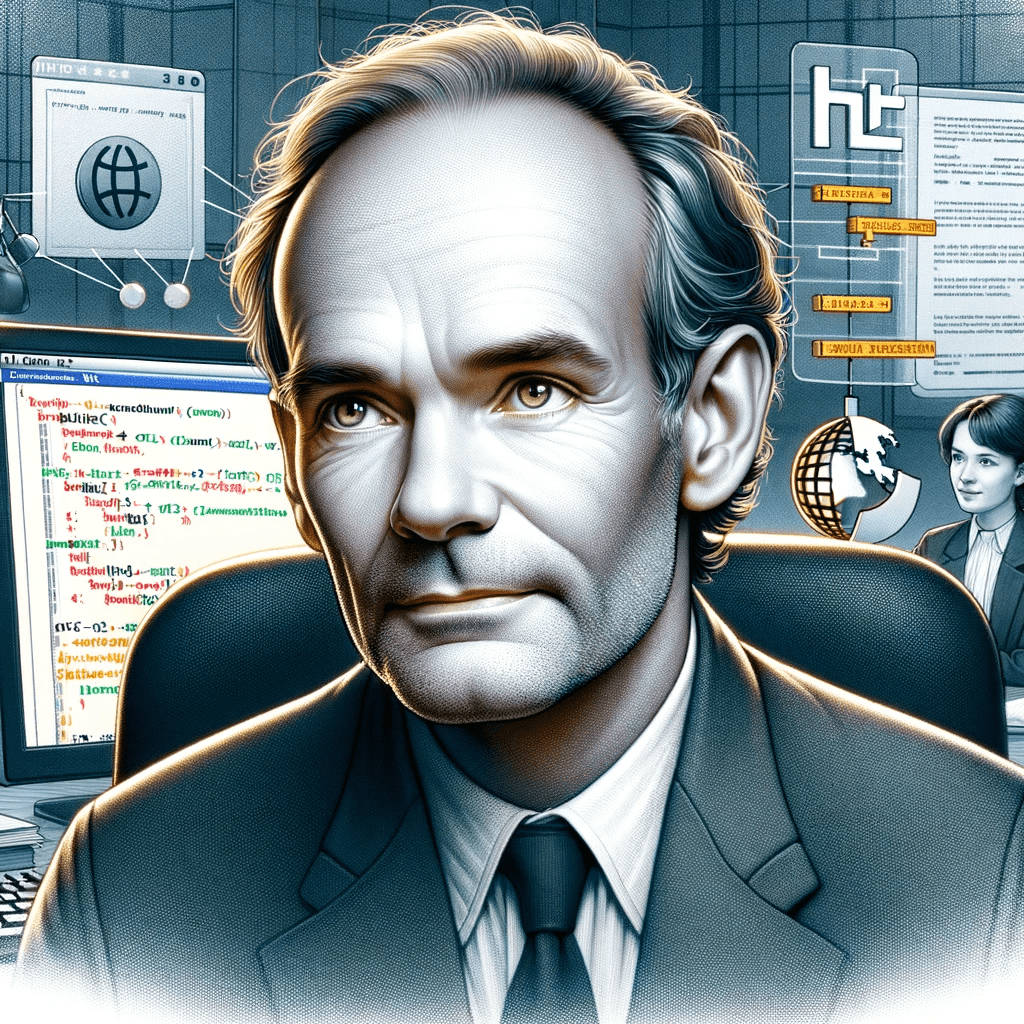Today’s lesson goal: Explore the life, achievements, and lasting impact of Tim Berners-Lee, the inventor of the World Wide Web.
Sir Tim Berners-Lee, born on June 8, 1955, in London, is a pioneering computer scientist best known for inventing the World Wide Web. His groundbreaking work has fundamentally transformed how humanity communicates, accesses information, and conducts business.
Early Life and Education
- Background: Berners-Lee was born into an environment rich in the legacy of computing; his parents were early computer scientists who worked on the Manchester Mark I.
- Education: He studied physics at Queen’s College, Oxford, earning a first-class bachelor’s degree in 1976.
Career Beginnings
- Early Career: Post-graduation, Berners-Lee worked in various roles in computing, including at Plessey Telecommunications and D.G. Nash.
- CERN: His career took a significant turn when he joined the European Organization for Nuclear Research (CERN) in 1980.
Inventing the World Wide Web
- The Proposal: While at CERN, Berners-Lee wrote a proposal for an information management system, laying the groundwork for the Web.
- The First Web Browser and Server: He developed the first web browser, WorldWideWeb (later renamed Nexus), and the first web server in 1990.
- Technologies Created: Berners-Lee created HTML (HyperText Markup Language), HTTP (HyperText Transfer Protocol), and URLs (Uniform Resource Locators).
The First Website
- Launch of the Web: The first website, hosted on a NeXT computer at CERN, went live in August 1991, marking the public birth of the Web.
Post-Web Invention
- Continued Work: Berners-Lee continued to develop web standards and protocols, working with various organizations.
- W3C: He founded the World Wide Web Consortium (W3C) in 1994 at MIT, dedicated to developing open web standards.
Honors and Recognition
- Awards: He has received numerous accolades, including being knighted by Queen Elizabeth II in 2004 and receiving the Turing Award in 2017.
- Legacy: Berners-Lee’s invention is recognized as one of the most significant of the 20th century, impacting billions of lives.
Current Endeavors
- Advocacy: He advocates for digital rights, net neutrality, and web accessibility.
- Solid Project: Berners-Lee is currently leading the Solid project, aiming to revolutionize web data ownership and privacy.
Impact on Society
- Global Connectivity: His invention paved the way for the digital age, revolutionizing communication, commerce, and information sharing.
- Ongoing Influence: Berners-Lee remains a key figure in guiding the future development and ethical use of the Web.
In conclusion, Tim Berners-Lee’s contributions to computing and global communication are monumental. His vision of a free, accessible web has enabled unprecedented connectivity and information sharing, shaping the modern world in profound ways.
